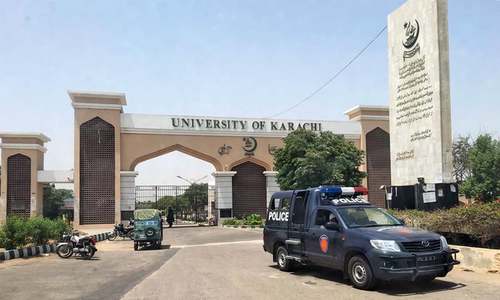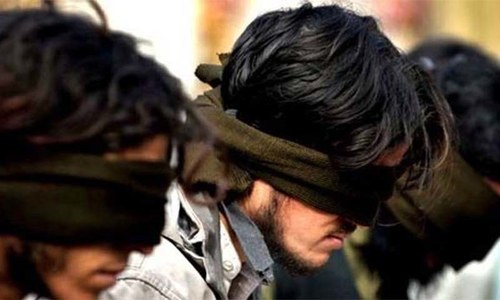ISLAMABAD: Reports that universities and higher education institutions are rapidly becoming hubs of extremism and breeding grounds for militant organisations abound, leaving parents, teachers and various segments of society alarmed. And yet, so far, no practical steps have been taken by authorities against the elements purportedly infiltrating our campuses.
While universities’ administrations and student groups have their own views on the matter, the government’s response has been lukewarm so far.
Dr Mukhtar Ahmed, chairman of the Higher Education Commission (HEC), shares his thoughts on the issue and proposes a strategy to fight this challenge.
Q: Do you agree with the notion that universities are rapidly becoming incubators of militants?
A: No, radicalisation and extremism have become significant concerns all over the world regardless of religion.
The proliferation of communication technologies and easy access to all strains of literature and information has been the primary cause of this phenomenon. Universities, being a part of society, cannot remain isolated. However, the occurrence of one or two incidents on campuses should not be taken to mean that universities are incubating militancy.
Q: Why do you think people believe that a majority of higher education institutions are being radicalised?
A: An increasing number of people are of the view that university managements need to respond and curb opportunities that facilitate radicalisation at universities.
Q: What are the reasons why young students or teachers may feel an inclination towards extremism?
A: There is a lack of tolerance in society all around the world and Pakistan is no exception. Increasing income disparity and lack of equitable access to justice, education and healthcare are some of the reasons along with unemployment. Hatred is being promoted rapidly because of the unprecedented connectivity available to the younger generations today, making them the most vulnerable segment of society.
Q: What actions would you suggest in order to de-radicalise educational institutions?
A: i. Enrolment of students in accordance with academic and physical resources available with the institution for better management and supervision of students, faculty and non-faculty members of academic institutions.
ii. Gainful employment of students in sports and co-curricular activities.
iii. Revival of institutions of tutorials and establishing counselling offices.
iv. Strict monitoring of unauthorised entries to institutions especially in hostels where only authorised university students should be allowed to enter and live.
v. Holding seminars and conferences on key issues to inculcate awareness and improve understanding of subjects often used to preach extremism.
Q: Do you think that universities and other higher education institutions are doing enough to stop students from developing an extremist mindset?
A: Given the new realities discussed above, universities and higher education institutions will need to strategise and enhance efforts to control the threat of radicalisation.
Q: Do you plan on taking action against those institutions that fail to protect their students from exposure to extremist ideas?
A: The HEC, in consultation with heads of higher education institutions, is already involved in discussing the role of the university faculty and management in curbing and discouraging such occurrences. We are looking to engage students and encourage them to get involved in positive educational activities for personal development.
Q: Do you think that higher education institutions should take help from law enforcement agencies in this regard?
A: There is a need to identify weak areas and gaps to control the situation and seek the support of relevant institutions on a selective basis.
Q: Has the HEC asked universities to generate counter-narratives against extremism?
A: Yes, the Higher Education Commission took up the issue at the Vice Chancellors Conference, where we discussed possible weaknesses and ways to control them. The issue had been earlier taken up at a recent seminar jointly organised by the Inter-Services Public Relations, the military’s media affairs wing, and the HEC where all vice chancellors were informed about the existing situation and their roles and responsibilities in this regard.
Q: What counter-narratives could universities create to prevent students and teachers from falling into the trap of extremism?
A: Islam is a religion of peace which teaches respect for life, property and the dignity of people. We need to preach the teachings of Islam and illustrate, using modern multi-media tools, how Prophet Muhammad (PBUH) had responded to various challenges of extremism and radicalism during his life.
Q: Do you think that law enforcement agencies have done enough to keep militants away from universities?
A: There is always room for improvement, and we would prefer to address the situation by improving the participation of stakeholders, and through coordination and monitoring.
Q: Do you need the government’s support in fighting this challenge?
Ans: Yes. We do rely on the government for political, financial and administrative help in order to check radicalisation and to involve students in gainful and productive activities.
Published in Dawn, September 7th, 2017
















































